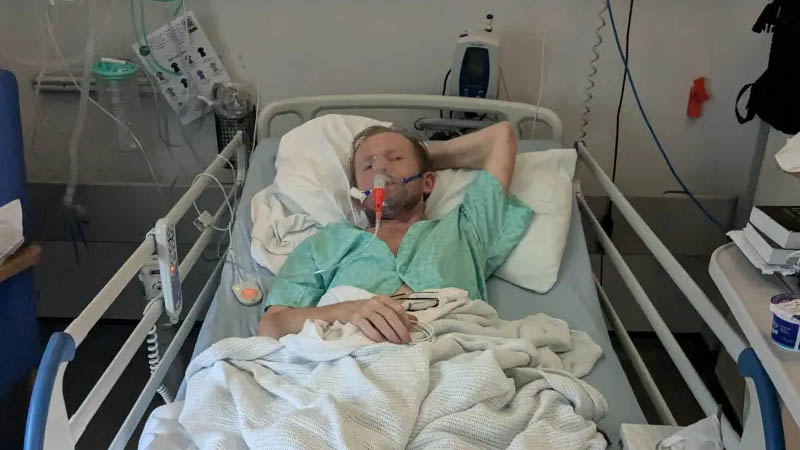Marek Marzec, a 48-year-old father of three, has been told he has only weeks to live due to silicosis, a severe lung disease developed after years of cutting quartz worktops, according to the New York Post. Marzec, originally from Poland, is now seeking legal action against his former employers, stating he is “furious” about the “lethal” dust exposure that has left him in “terrible pain” and struggling to breathe.
Since 2012, Marzec worked with engineered stone in north London and Hertfordshire, inhaling crystalline silica dust—a substance known to cause long-term lung damage. After being diagnosed with silicosis in April, his health rapidly deteriorated, leaving him too weak to undergo a potentially lifesaving lung transplant. Now receiving end-of-life care at Whittington Hospital in north London, Marzec’s condition is monitored by Dr. Jo Feary, a leading occupational lung disease expert from the Royal Brompton Hospital.
In a recent interview, Marzec shared his frustration and disappointment: “I arrived in the UK hoping to build a better life and wanting to make sure that my young daughters were financially secure. Instead, because of the work I did cutting quartz worktops, I have been left unable to breathe and in terrible pain. I cannot tell you how angry I am that I was allowed to work in these conditions and that my life has been cut short simply for doing my job”, reported by the Mirror.
The law firm Leigh Day is representing Marzec and other stoneworkers facing similar health issues, calling for urgent safety reforms in the industry. Ewan Tant, Marzec’s solicitor and a partner at Leigh Day, stressed the importance of immediate action: “This is a tragic case, with my client now on end-of-life care as a result of working with engineered stone, in what he alleges were appalling conditions, totally unfit for purpose. No one should end up facing the bleakest of outcomes simply as a result of going to work.”
A recent study has revealed that many stoneworkers like Marzec suffer from an acute form of silicosis that causes extreme shortness of breath and severe disability. With a lung transplant often being the only treatment option, many patients, including Marzec, are left without viable options as their health worsens.
Tant warned that without tougher safety measures, further cases and fatalities could emerge, as exposure to silica dust remains prevalent in stone-cutting environments. “We are deeply concerned that unless something is done to address the dangers of working with engineered stone without proper protection, we may be looking at more cases with similarly appalling—and potentially fatal—outcomes in the near future,” he added.
Marzec hopes his story will prevent future tragedies, urging immediate changes in workplace safety to protect other workers from facing the same fate.



